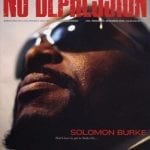Grandpa, Granny, and Hee Haw
In 1971, CBS executive Fred Silverman made headlines with what became known as his “Rural Purge” when he canceled nine television shows (including The Beverly Hillbillies, Mayberry RFD, and Green Acres) — not because they weren’t successful, but because they skewed to a rural audience, which Silverman apparently deemed undesirable. The bigwig said he was “tired of CBS being known as the ‘Countrified Broadcasting Station.'”
Also among the axed shows was Hee Haw, which had always been in the top 20. The show’s producers knew they had something special and weren’t about to be silenced so easily. They turned to syndication, and Hee Haw continued to be produced until 1992. Needless to say, CBS lost a bundle because of its reverse snobbery.
Apparently nobody learned a lesson from this. Rural Americans or country people or lovers of country music are not represented at all today on television. Hell, a viewer would be hard-pressed to see a rural setting in a CMT video nowadays.
Time-Life recently gave Hee Haw the full DVD treatment, with extensive interviews and four discs of well-organized clips in a compilation called A Salute To Hee Haw. Looking back over the clips, one might wonder why rural people, or country music lovers, or anyone, loved this show so much in the first place. The show was a sort of Appalachian Laugh-In, after all, with people wearing floppy hillbilly hats popping out of the corn to trade one-liners, or Archie Campbell and Grandpa Jones stretched out on a porch with their hound dog and a crock of shine nearby. In short, it made fun of country people.
Hee Haw didn’t always stick close to its roots, either. Guests included not only Merle Haggard and Dottie West but also Sammy Davis Jr. and Ethel Merman. And the jokes were sometimes lame.
Still, everyone loved it. We still love it. I know I do.
Even though I sometimes cringe at thinking of what someone who has never experienced a rural place might think upon watching Hee Haw, I still laugh at all the gags, whether it be the Culhanes looking slack-jawed into the camera and reciting their soap-opera-esque lines, or Minnie Pearl trying to discipline her unruly classroom, or the scantily clad ladies hanging clothes out on the line while discussing their men.
And despite all the stereotypes some folks might get mad about, I believe there’s an underlying dignity and sweetness to all of them. Junior Samples speaks so slowly that you feel as if you’re easing down the dust-swirling backroads of the South Georgia woods where he grew up. Instead of coming off as an ignoramus, Samples seems like he’d make a good friend. He was honest, blunt, real. He was dignified. Although studio executives might have deemed a character like him ridiculous, he became one of the show’s most beloved cast members.
And then there was the music. Loretta Lynn sways in a barnyard and sings “Fist City” with a smile on her face and then, after a commercial break, she’s leaning against a porch post singing “Dear Uncle Sam” with such subtlety and longing that you don’t even realize what a powerful anti-war song you’ve just heard.
It wasn’t just the guest stars, though. The entire cast had real talent, whether it was Roni Stoneman’s virtuoso banjo playing or LuLu Roman’s pitch-perfect comedic timing. It’s easy to forget how amazing Roy Clark was at playing guitar, banjo, or whatever he picked up. And let’s just say it: Buck Owens could sing anything.
Hee Haw was filmed in Nashville, which allowed most of the cast members to retain their down-home nature despite the success of the show. That down-home feel has always been the show’s true trademark; it’s the reason people loved it, and continue to love it. Audiences felt as if the Hee Haw stars were old friends. Fans often cite the big closing gospel number as one of their main reasons for watching the show because they knew everyone who was singing.
The things I love most about Hee Haw are those skits where Grandpa Jones is sitting in the middle of the general store and a big crowd is gathered close and quiet, listening while he tells a long, complicated, and ultimately funny story. I can’t imagine someone on television today actually telling a story. It’s an amazing thing to witness, the way that Jones knew how to do this. He told stories just the way my grandmother did, with perfectly chosen details and rhythm, vivid characterizations, and fine-tuned pauses.
I don’t have any of my grandmother’s stories on videotape, but I am able to watch Grandpa Jones over and over again. The rhythm that both he and my granny knew was that of the land, of the countryside, of people who admired talent and dignity. Like the friends we made on Hee Haw.




